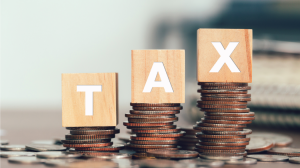 Online gaming companies have made a detailed representation to the Finance Ministry, seeking clarity on the recent decision by the 50th GST Council to levy a 28 percent tax on the industry, sources told CNBC-TV18. The companies are concerned that this move could result in repetitive taxation on both online gaming platforms and players due to the imposition of GST on the full value of bets.
Online gaming companies have made a detailed representation to the Finance Ministry, seeking clarity on the recent decision by the 50th GST Council to levy a 28 percent tax on the industry, sources told CNBC-TV18. The companies are concerned that this move could result in repetitive taxation on both online gaming platforms and players due to the imposition of GST on the full value of bets.
Representatives from various online gaming companies met with the Revenue Secretary on July 15 to discuss their apprehensions regarding the GST Council’s decision. During the meeting, the Revenue Secretary informed the gaming companies that the decision to impose a 28 percent tax on online gaming was unanimous among the Council members.
The major point of contention raised by the gaming companies is the potential for repetitive taxation on the same amount of money. They argue that “taxing the full value of bet would lead to repeated taxation of the same rupee as players play with redeployed winnings. This will result in 50-70 percent tax on player money. This would impact investor confidence, lead to loss of jobs, hurt FDI into the sector.”
In light of these concerns, the Revenue Secretary requested the gaming companies to present calculations comparing the tax implications on “deposits” versus the tax on the full value of bets.
On average, a player participates in three to four games per deposit, further complicating the taxation dynamics.
The representatives of the online gaming companies also sought clarity on the apparent differentiation in tax rules when compared to casinos. They questioned why the GST is to be levied on chips bought at the time of entry in casinos, whereas online games will be taxed on the entire amount, including platform fees or the “full value of bets.”
To address their concerns, the gaming companies are requesting to be brought to par with casinos in terms of tax treatment. They advocate for taxing only the “deposits” made by users and not imposing additional taxes if the winnings are redeployed to play more games.
In a related development, 30 venture capital investors have written a letter to the Prime Minister, expressing their concerns over the potential impact of the 28 percent GST on the Gross Gaming Revenue (GGR) or platform fees.
On the other hand, if the “full value of bets” is taxed on every contest, including fully taxed winnings, the GST burden could skyrocket by 1,100 percent. The investors point out that this repetitive taxation on redeployed player winnings could lead to a scenario where over 50-70 percent of every rupee earned by players would go towards GST, making the online real money skill gaming business model economically unviable.
The investors propose that if “full value of bets” is taxed as the full deposit value i.e. deposits made by users and not taxed again if the winnings are redeployed to play a game (at par with casinos), there will be a 350 percent increase in GST burden on the sector.
This will result in the closure of most gaming startups and will require major restructuring across the industry to survive. Importantly, as deposits for online games are digital and made via authorised payment channels, it would allow GST authorities to track and verify all GST filings and remove any scope for manipulation by unscrupulous actors.
Source: CNBC TV-18
https://www.cnbctv18.com/technology/online-gaming-companies-seek-clarity-on-50th-gst-council-decision-of-28-pc-tax-exclusive-17298251.htm
https://www.cnbctv18.com/technology/online-gaming-companies-seek-clarity-on-50th-gst-council-decision-of-28-pc-tax-exclusive-17298251.htm


